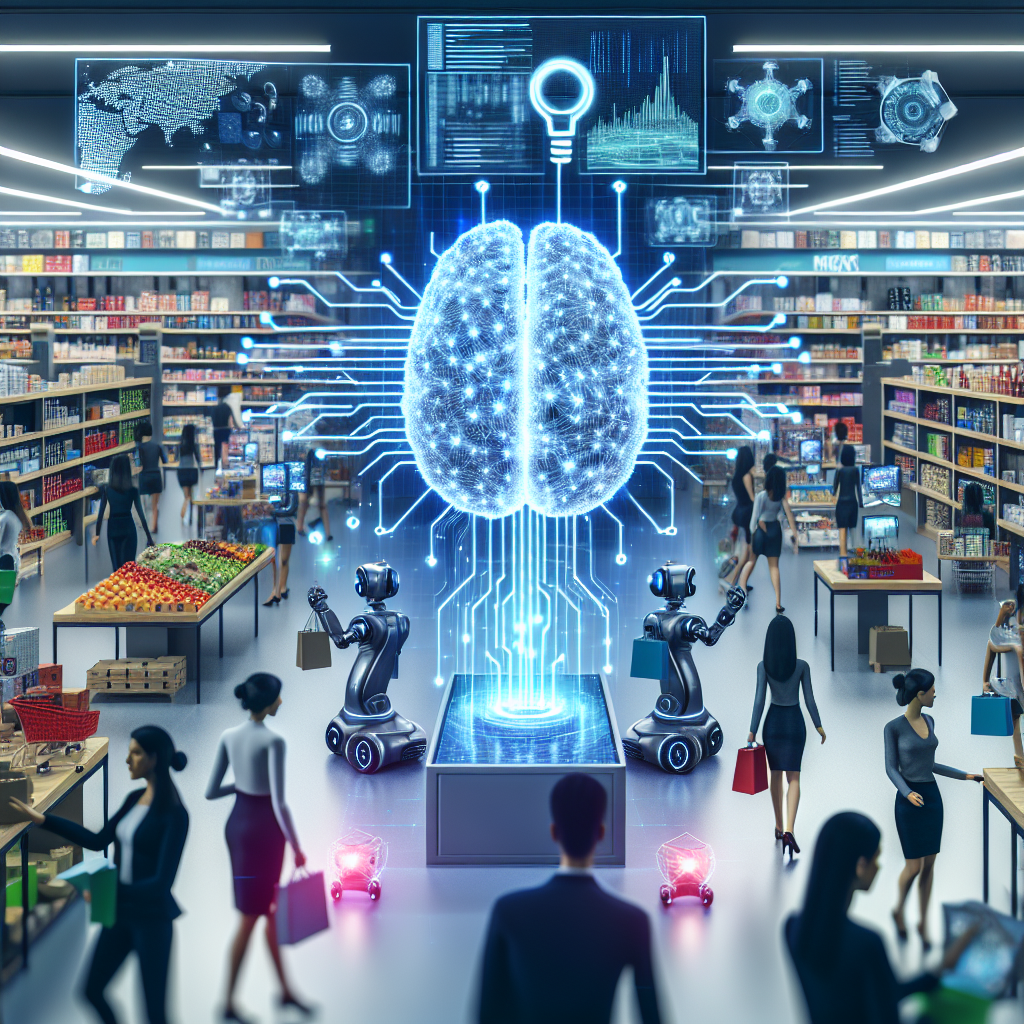Artificial intelligence (AI) has become a game-changer in the retail industry, revolutionizing the way businesses operate and interact with customers. From personalized shopping experiences to inventory management and supply chain optimization, AI-driven solutions are transforming the retail landscape in unprecedented ways.
AI-powered solutions are helping retailers better understand their customers’ preferences and behaviors, enabling them to offer more personalized and targeted marketing campaigns. By analyzing vast amounts of data, AI algorithms can identify patterns and trends that human analysts may overlook, allowing retailers to tailor their offerings to individual customers’ needs and preferences.
One of the most significant impacts of AI in retail is the ability to create personalized shopping experiences for customers. AI-powered recommendation engines analyze customers’ browsing and purchasing history to suggest products that are likely to interest them. This not only enhances the shopping experience for customers but also increases sales and customer loyalty.
AI is also being used to optimize inventory management and supply chain operations. Retailers can use AI algorithms to predict demand for products, optimize pricing strategies, and streamline inventory management processes. By accurately forecasting demand and automating inventory replenishment, retailers can reduce stockouts, minimize overstocking, and improve overall supply chain efficiency.
Furthermore, AI-driven solutions are helping retailers improve operational efficiency and reduce costs. By automating routine tasks such as data entry, order processing, and customer service, retailers can free up employees to focus on more strategic activities. AI-powered chatbots and virtual assistants can handle customer inquiries and resolve issues in real-time, providing a seamless and personalized customer experience.
In addition to enhancing customer experiences and improving operational efficiency, AI is also enabling retailers to gain valuable insights into market trends and consumer behavior. By analyzing data from multiple sources, including social media, online reviews, and sales data, retailers can identify emerging trends, understand customer sentiment, and make data-driven decisions to stay ahead of the competition.
Despite the numerous benefits of AI in retail, there are some challenges and concerns that retailers must address. One of the biggest challenges is data privacy and security, as AI solutions rely on vast amounts of customer data to operate effectively. Retailers must ensure that they are compliant with data protection regulations and take measures to safeguard customer information from data breaches and cyber attacks.
Another challenge is the potential impact of AI on the workforce, as automation and AI-driven solutions may lead to job displacement in some retail roles. Retailers must invest in training and upskilling their employees to adapt to new technologies and roles, ensuring a smooth transition to an AI-driven future.
Overall, AI-driven solutions are transforming the retail industry in profound ways, enabling retailers to offer personalized shopping experiences, optimize inventory management, improve operational efficiency, and gain valuable insights into market trends and consumer behavior. By embracing AI technologies and leveraging data-driven insights, retailers can stay competitive in a rapidly evolving industry landscape.
FAQs:
Q: How can AI-powered solutions improve customer experiences in retail?
A: AI-powered solutions can enhance customer experiences by offering personalized product recommendations, streamlining the shopping process, and providing real-time customer support through chatbots and virtual assistants.
Q: How are retailers using AI to optimize inventory management?
A: Retailers are using AI algorithms to predict demand for products, optimize pricing strategies, and automate inventory replenishment processes, leading to reduced stockouts, minimized overstocking, and improved supply chain efficiency.
Q: What are some of the challenges of implementing AI in retail?
A: Some of the challenges of implementing AI in retail include data privacy and security concerns, potential job displacement due to automation, and the need for employee training and upskilling to adapt to new technologies.
Q: How can retailers ensure they are compliant with data protection regulations when using AI?
A: Retailers can ensure compliance with data protection regulations by implementing robust data security measures, obtaining customer consent for data collection and processing, and regularly auditing and monitoring their AI systems for compliance.
Q: What are some of the ways AI is helping retailers gain insights into market trends and consumer behavior?
A: AI is helping retailers gain insights into market trends and consumer behavior by analyzing data from multiple sources, including social media, online reviews, and sales data, to identify emerging trends, understand customer sentiment, and make data-driven decisions.

